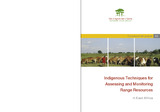| dc.contributor.author | Nyariki, Dickson M. | |
| dc.contributor.author | Kitalyi, A. | |
| dc.contributor.author | Wasonga, V. O. | |
| dc.contributor.author | Isae, I. M. | |
| dc.contributor.author | Kyagaba, E. | |
| dc.contributor.author | Lugenja, M. | |
| dc.date.accessioned | 2017-02-25T07:46:37Z | |
| dc.date.available | 2017-02-25T07:46:37Z | |
| dc.date.issued | 2005 | |
| dc.identifier.uri | http://hdl.handle.net/123456789/217 | |
| dc.identifier.uri | http://www.academia.edu/26716241/Indigenous_Techniques_of_Assessing_and_Monitoring_Range_Resources_in_East_Africa._Occasional_Paper_No.2._Nairobi_World_Agroforestry_Centre | |
| dc.identifier.uri | http://erepository.uonbi.ac.ke/handle/11295/11612 | |
| dc.identifier.uri | https://www.worldagroforestry.org/publication/indigenous-techniques-assessing-and-monitoring-range-resources-east-africa | |
| dc.identifier.uri | https://www.researchgate.net/publication/271832065_Indigenous_Techniques_of_Assessing_and_Monitoring_Range_Resources_in_East_Africa_Occasional_Paper_No2_Nairobi_World_Agroforestry_Centre | |
| dc.identifier.uri | https://www.semanticscholar.org/paper/Indigenous-techniques-for-assessing-and-monitoring-Isae-Lugenja/8ea2d85850ad54c1e826082d18759b9b632c8052 | |
| dc.description.abstract | Local knowledge, which refers to a social activity that has been set up primarily as a result of local initiative, or techniques that are endogenously generated, enforced and maintained has not been mainstreamed in rangeland development programmes in the region. This paradigm unfortunately overlooks the fact that local knowledge and experiences form the basis for local-level decision making in natural resource management. Recently there has been increasing interest and understanding of traditional knowledge systems in the fields of ethno-veterinary medicine but not so in natural resource management. Consequently, the ecological integrity of the rangelands is deteriorated because of increasing population growth, cultivation, overstocking, felling of trees, and other unsustainable resource utilization methods. In recognition of the role of traditional knowledge in natural resource management and sustainable development, case studies were conducted to document the traditional methods used to assess and monitor the condition and trend of grazing lands in East Africa by the Pokot and Il Chamus of Kenya, the Barabaig and Maasai of Tanzania, and the Bahima and Ateso of Uganda. The results of this study support the theory of the existence of complementary relationships between traditional techniques and modern scientific knowledge. | en_US |
| dc.language.iso | en | en_US |
| dc.subject | range resources | en_US |
| dc.title | Indigenous techniques for assessing and monitoring range resources in East Africa | en_US |
| dc.type | Book | en_US |

